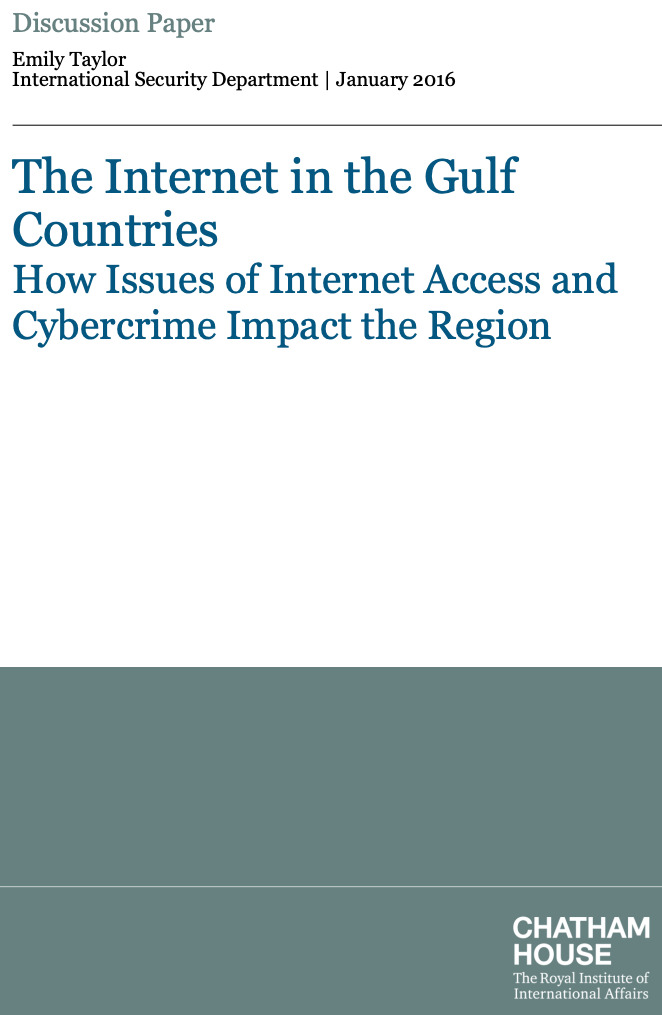
Description
A paper commissioned by Chatham house discussing the increasing internet access in the Middle Easter Gulf countries and the issues presented in cybercrime.
Blog summary
The internet is often termed a ‘disruptive technology’, referring to its game-changing impact on communications markets. But the internet has the potential to be disruptive in more ways than one: as well as bringing opportunities for economic growth, access to information and being a crucible for innovation, it can also be perceived as disrupting the harmony of societies, undermining hard-won stability or even providing a haven for crime and extremism.
This paper aims to complement discussions at Chatham House’s roundtable on the internet in the Gulf countries, which was held on 12 January 2016. It begins with a review of Gulf Cooperation Council (GCC) plans to develop knowledge economies and the challenges involved. It goes on to review the current state of internet access in the Gulf, evaluating internet penetration rates, broadband costs and social media uptake. The paper highlights particular features of the internet in the Gulf: the contrast between vibrant social media uptake and low domain name registrations; a relatively immature market for online payments and the impact on ecommerce; and low levels of local language content, particularly for general websites, and software tools. The next section focuses on cybercrime. While the region has not historically been associated with cybercrime, this is changing – and the GCC is increasingly a target and source of online crime. There are links between cybercrime and proscribed terror groups. The distinction between cybercrime on the one hand, and cyber-activism on the other, is often blurred. Civil society groups criticize recent internet laws enacted in Gulf countries as being ‘tools for repression’2. Different understandings of the definition of ‘cybercrime’ makes the sale of dual-use technologies to Gulf governments by Western companies an increasingly controversial issue.
About this Blog
Publisher
Chatham House
File type
PDF
File size
245k
Page count
15
First published on
Invalid Date

